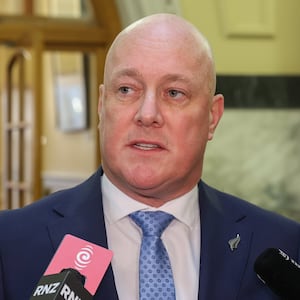World
New Zealand Government Weighs Recognition of Palestinian Statehood

The New Zealand Government is set to deliberate on the formal recognition of Palestinian statehood over the next six weeks. Prime Minister Christopher Luxon has described the issue as complex, reflecting the differing perspectives within the coalition government, which consists of three distinct parties.
Luxon has expressed strong support for recognizing a Palestinian state, yet he has also acknowledged the insistence of Foreign Minister Winston Peters on adhering to a structured decision-making process. This approach is informed by past experiences, notably during the final months of the Key-English Government. At that time, Peters criticized former Foreign Minister Murray McCully for bypassing Cabinet authorization when he collaborated with Venezuela, Senegal, and Malaysia to co-sponsor UN Resolution 2334. This resolution condemned Israeli settlements in the West Bank and East Jerusalem.
Peters has underscored that any similar action by Prime Minister Luxon could contravene section 5.12 of the Cabinet Manual, which mandates that ministers, including the Prime Minister, must submit significant or controversial policy issues to Cabinet. This includes matters related to New Zealand’s international relationships, security, and foreign policy.
As discussions unfold, the dynamics among the coalition parties will play a crucial role in shaping the outcome. Each party brings its own views on foreign policy, particularly regarding the Israeli-Palestinian conflict. The government’s decision on this matter could have far-reaching implications for New Zealand’s international standing and its diplomatic relationships.
Luxon’s administration is currently navigating the fine line between supporting Palestinian aspirations and maintaining diplomatic ties with Israel. The ongoing discussions may also reflect broader international trends as countries reassess their positions on Palestinian statehood in light of evolving geopolitical realities.
In the coming weeks, public and political scrutiny will likely intensify as stakeholders await the government’s decision. The outcome will not only impact New Zealand’s foreign affairs but also resonate within the wider context of global discussions about statehood and recognition in the Israeli-Palestinian conflict.
-

 World1 week ago
World1 week agoPrivate Funeral Held for Dean Field and His Three Children
-

 Top Stories2 weeks ago
Top Stories2 weeks agoFuneral Planned for Field Siblings After Tragic House Fire
-

 Sports3 months ago
Sports3 months agoNetball New Zealand Stands Down Dame Noeline Taurua for Series
-

 Entertainment3 months ago
Entertainment3 months agoTributes Pour In for Lachlan Rofe, Reality Star, Dead at 47
-

 Entertainment2 months ago
Entertainment2 months agoNew ‘Maverick’ Chaser Joins Beat the Chasers Season Finale
-

 Sports3 months ago
Sports3 months agoSilver Ferns Legend Laura Langman Criticizes Team’s Attitude
-

 Sports1 month ago
Sports1 month agoEli Katoa Rushed to Hospital After Sideline Incident During Match
-

 World2 weeks ago
World2 weeks agoInvestigation Underway in Tragic Sanson House Fire Involving Family
-

 Politics2 months ago
Politics2 months agoNetball NZ Calls for Respect Amid Dame Taurua’s Standoff
-

 Top Stories2 weeks ago
Top Stories2 weeks agoShock and Grief Follow Tragic Family Deaths in New Zealand
-

 Entertainment3 months ago
Entertainment3 months agoKhloe Kardashian Embraces Innovative Stem Cell Therapy in Mexico
-

 World4 months ago
World4 months agoPolice Arrest Multiple Individuals During Funeral for Zain Taikato-Fox





















